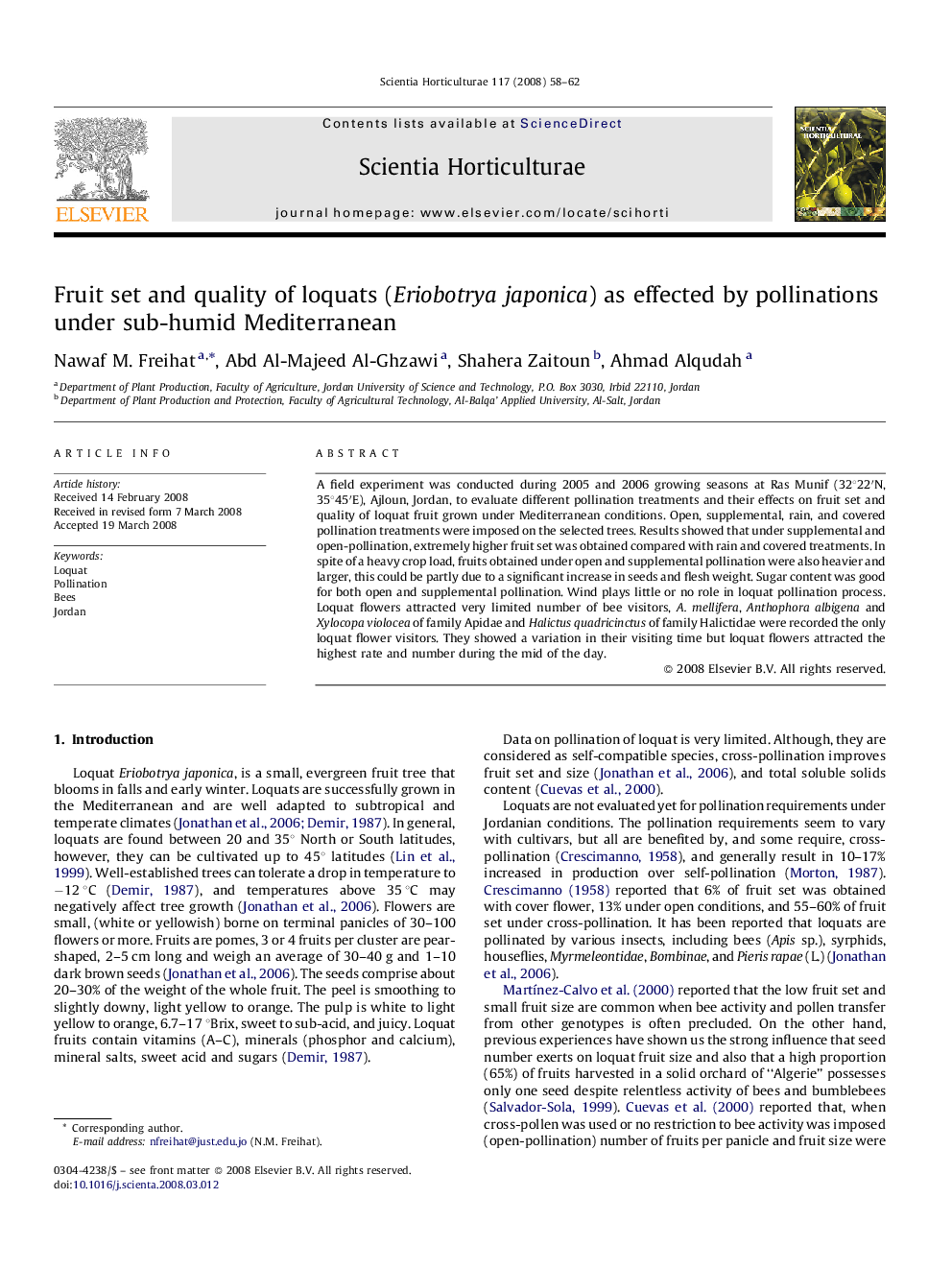| Article ID | Journal | Published Year | Pages | File Type |
|---|---|---|---|---|
| 4569582 | Scientia Horticulturae | 2008 | 5 Pages |
A field experiment was conducted during 2005 and 2006 growing seasons at Ras Munif (32°22′N, 35°45′E), Ajloun, Jordan, to evaluate different pollination treatments and their effects on fruit set and quality of loquat fruit grown under Mediterranean conditions. Open, supplemental, rain, and covered pollination treatments were imposed on the selected trees. Results showed that under supplemental and open-pollination, extremely higher fruit set was obtained compared with rain and covered treatments. In spite of a heavy crop load, fruits obtained under open and supplemental pollination were also heavier and larger, this could be partly due to a significant increase in seeds and flesh weight. Sugar content was good for both open and supplemental pollination. Wind plays little or no role in loquat pollination process. Loquat flowers attracted very limited number of bee visitors, A. mellifera, Anthophora albigena and Xylocopa violocea of family Apidae and Halictus quadricinctus of family Halictidae were recorded the only loquat flower visitors. They showed a variation in their visiting time but loquat flowers attracted the highest rate and number during the mid of the day.
